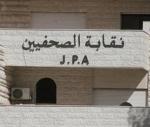You are here
Cooperation centred on water, environment imperative for regional stability — experts
By Hana Namrouqa - Feb 25,2017 - Last updated at Feb 25,2017
AMMAN — Frontline states with Syria should find ways to engage in practical cooperation on essential issues, including water, refugees and social justice to pave the way for a new humanitarian order in the Middle East, experts and policy makers have suggested.
As the current war in Syria prevents the creation of a regional cooperation council on a governmental level, sub-regional committees for cooperation between Iraq, Jordan, Lebanon and Turkey should be set up until there is a functional state in Syria, they pointed out.
During a roundtable meeting on Thursday, co-convened by the Strategic Foresight Group (SFG) and Majlis El Hassan in cooperation with the Royal Scientific Society and the Swedish International Development Cooperation Agency (Sida), participants discussed elements of a new architecture for the Middle East, one that is centred on water and environment in the region’s longer journey to find peace and stability.
With about 40 million hydro-insecure people in the Levant — some of them turning into refugees due to water scarcity and drought — the relationship between water, refugees and the gender factor should be carefully addressed, while a policy response should be designed, the participants agreed.
Ilmas Futehally — SFG co-founder, executive director and vice president — said that at the non-political level, there is a need to have a policy forum owned and managed by thought leaders in the region; one that has an inclusive approach to consider the voices of the vulnerable and the marginalised.
“In the current circumstances, Jordan has the best possibility to host both institutions, considering its relative political neutrality, stable state and institutional capacity,” Futehally told The Jordan Times.
During the meeting, participants expressed concern about the volatile and uncertain nature of current politics in the Middle East and the difficulties in mapping future trajectories, but expressed the need for new ways and a new architecture supported by financial resources from within the region.
The participants also called for the promotion of technical cooperation between the region’s countries through data exchange, harmonisation of standards, training and capacity building.
Esse Nilsson, senior programme manager at Sida’s MENA unit, said policies are useless until they are turned into realities, noting that there are many spaces for cooperation between the countries of the region if stakeholders’ engagement in an inclusive approach is adopted.
Nilsson also emphasised the importance of creating a regional knowledge base underpinned by an appropriate, regionally-owned and steered institutional apparatus.
Meanwhile, Maysoon Zu’bi, a member of the Blue Peace’s core group and president of the Higher Population Council, indicated that the younger generation should be involved in regional discussions on water.
“Bring the youth and educate them on water, because they are the future of the region,” Zu’bi said.
She also indicated that any water cooperation council or institution must enjoy a strong mandate that allows regulation and governing of water sharing and use in the region.
The participants also indicted that cooperation in water can be made possible if security concerns of all the riparian countries are respected and, where necessary, a trade-off between water and security is accepted.
Judith Enaw, secretary general of the Commission for the Congo-Oubangui-Sangha Basin and president of the African Network of River Basin Organisations, said there is a dire need for water cooperation in the Arab region.
She urged the region’s countries to regard water cooperation as a means for achieving economic growth and social wellbeing for the people, indicating that “trans-boundary water cooperation does not always lead to win-win outcomes, but the failure to have trans-boundary water cooperation can create lose-all outcomes”.
Related Articles
ENTEBBE, Uganda — A common vision and a joint secretariat can pave the way to cooperation on river basins and water resources in the Middle
AMMAN — Trans-boundary water cooperation on the Jordan River Basin between Jordan and Israel scored 56.67 under the Water Cooperation Quotie
ISTANBUL — Women involvement in water demand management must be enhanced in the region to achieve sustainable development, according to expe













